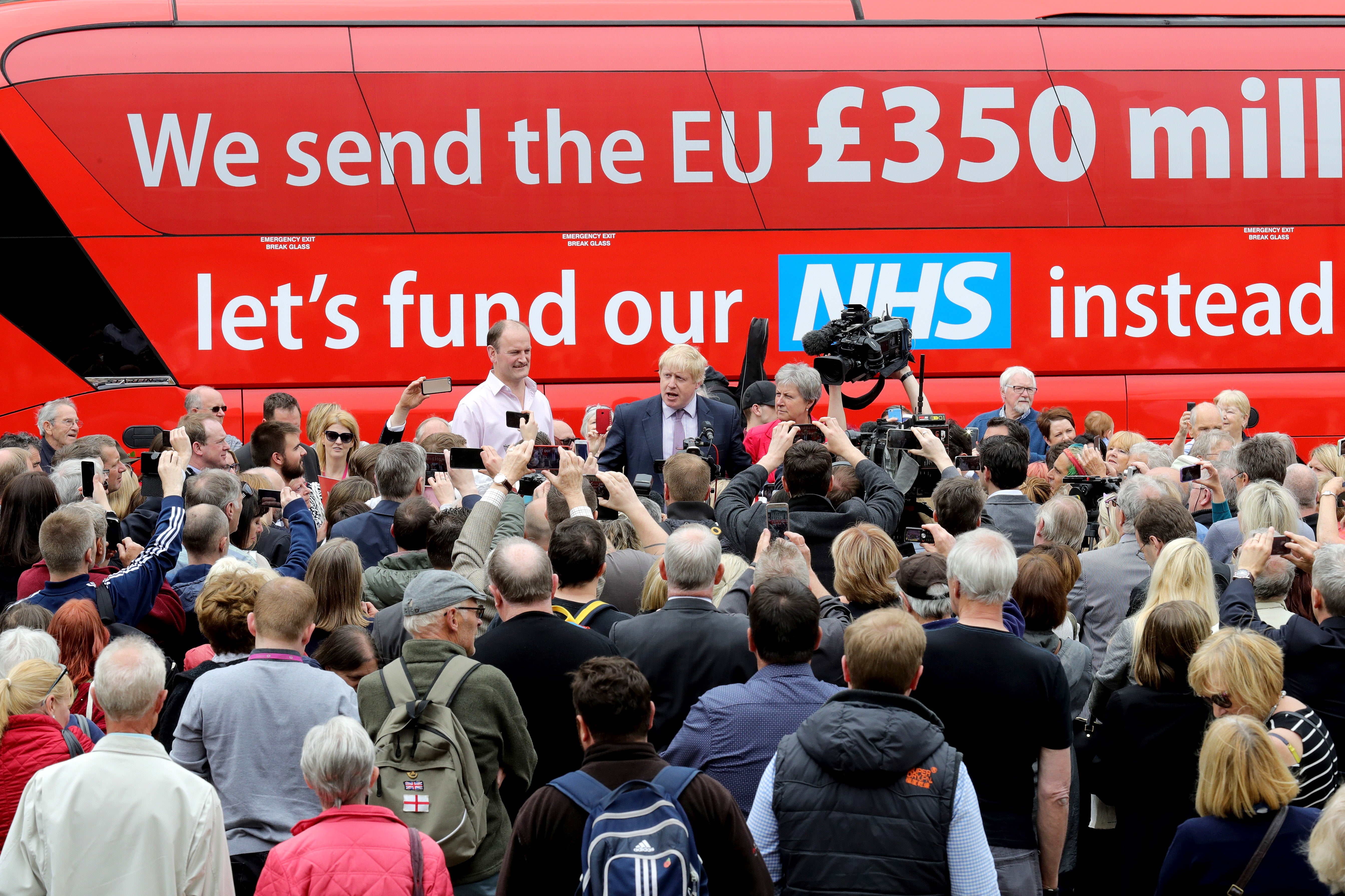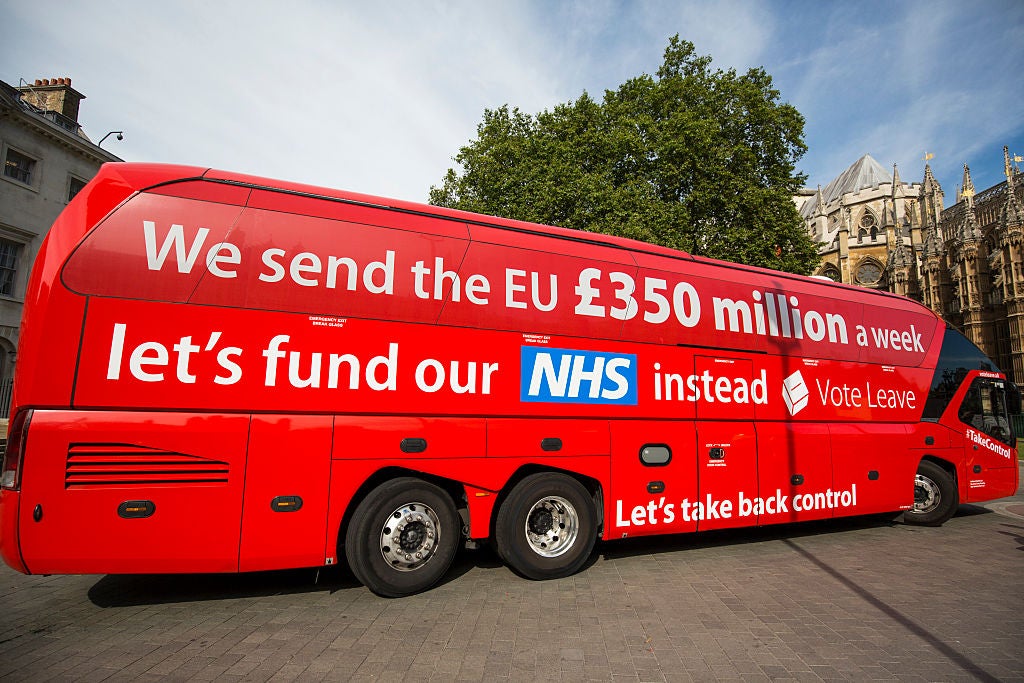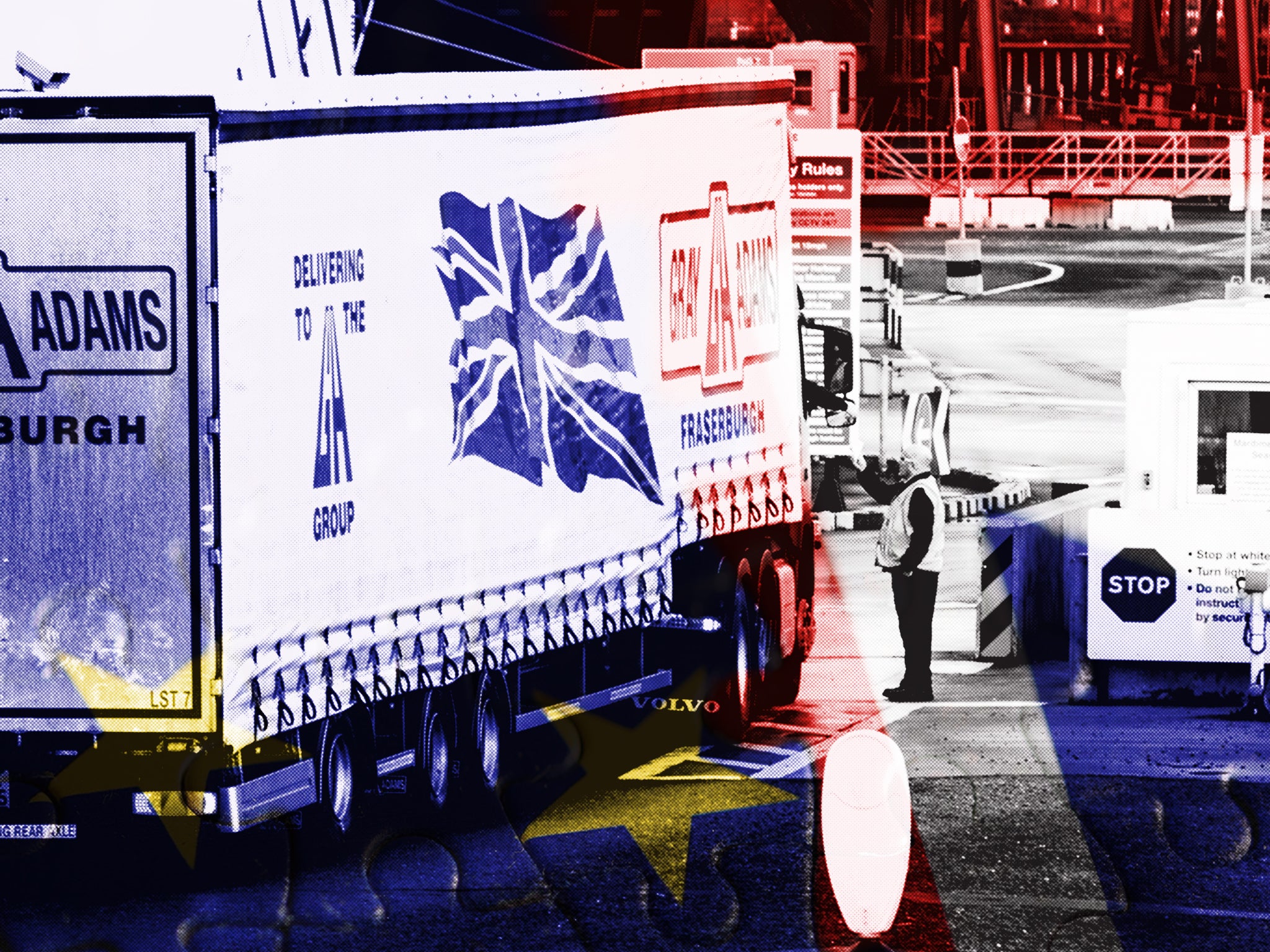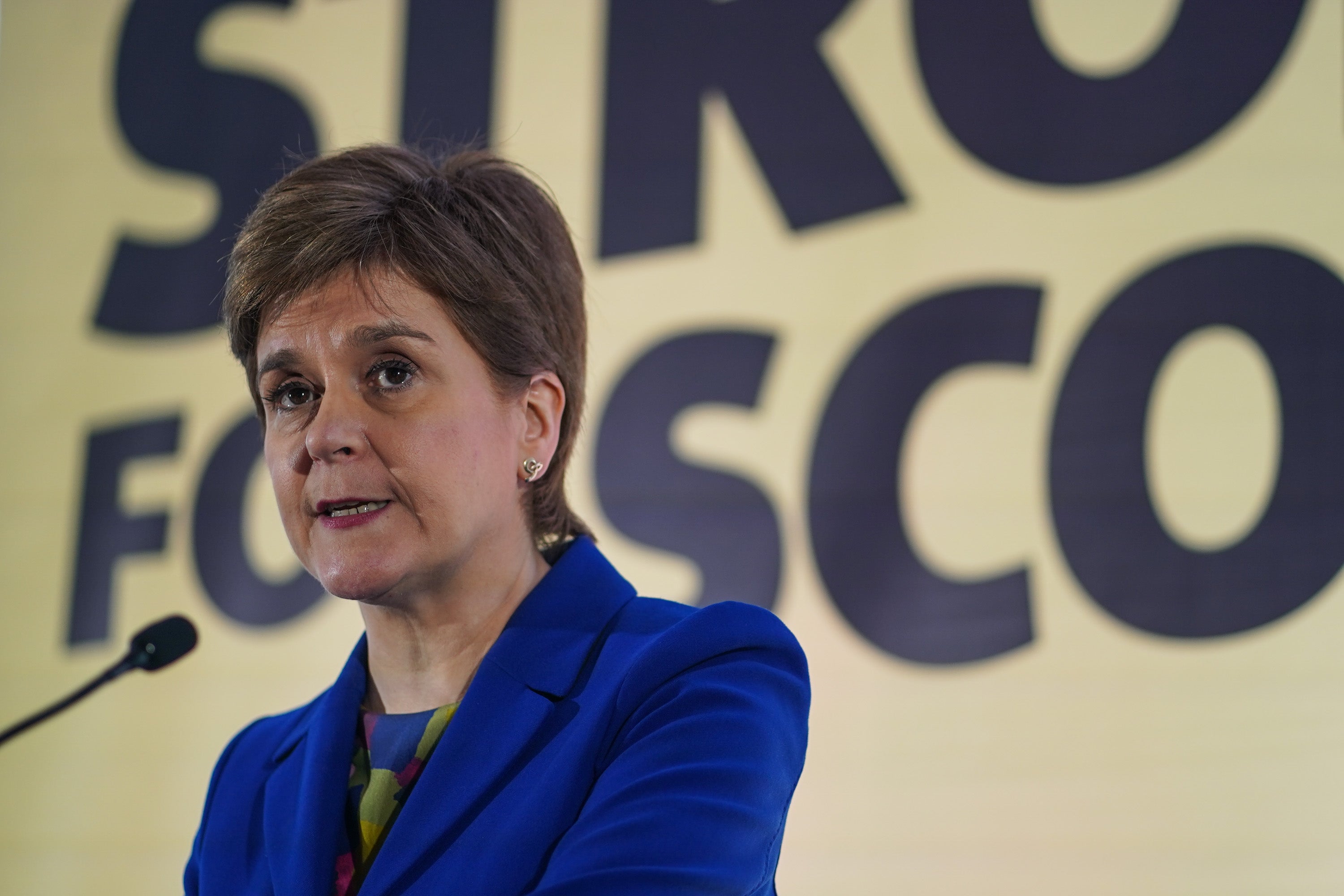Five big Brexit promises – and what we got instead
UK still experiencing problems after three years of Brexit

Brexit is back on everyone’s radar as Rishi Sunak pushes to strike a deal over the Northern Ireland protocol.
The prime minister has been on a diplomatic blitz as he seeks an agreement that will satisfy the demands of the Democratic Unionist Party (DUP).
The latest round of negotiations come three years after Britain left the European Union, when questions are still be asked - even among some Brexiteers - about how the Brexit has panned out.
In the run up to the 2016 referendum, campaign champions Boris Johnson, Michael Gove and Iain Duncan Smith stood outside a Vote Leave adorned red bus to make bold pledges on how leaving the union after 43 years could embolden Britain.
Claims were made that leaving the EU would be a democratic move for the UK, which could “take control” of its law setting and immigration. There were also big promises around how Britain could renew its position within the world with far-flung trade agreements as well as making progress back home with a better funded NHS.
The sense of progress can be measured in the latest Unherd study which found 54 per cent now feel it was the wrong decision while less than 30 per cent now “mildly” or “strongly” agree it was the right move.
But now the die is cast and the UK has reached the point of no return, the issues around Brexit are starting to be felt.
Here is how the claims made in 2016 have aged:

The pledge of £350 million a week for NHS
The biggest and most disputed claim put forward by the Vote Leave camp was that Britain sends £350 million a week to the EU and that the money could be used instead to fund the NHS.
Doubts immediately emerged about the legitimacy of the claim with even arch-Brexiter Nigel Farage, of the rival leave.eu campaign, saying: “I would never have made that claim, and it was one of the mistakes that the Leave campaign made”. Sajid Javid, then health secretary, told LBC radio host Nick Ferrari in 2020 the money diverted from the EU "hasn't been enough to meet the challenges” of the pandemic.
Theresa May did agree to grant the NHS £20 billion a year by 2023, which would be around £600 million in real terms by 2024 - but the extra cash was not a “Brexit dividend”.
Instead of Britain having surplus cash to use at its leisure, the UK has instead seen its economy shrink. The Centre for Economic Reform said in December that Brexit has left the UK economy is 5.5 per cent smaller than it would have been - and this in turn has seen a squeeze on public services, including the NHS.
The Centre said departing the EU single market reduced investment by 11 per cent and goods trade by 7 per cent in the second quarter of 2022. That has contributed to Britain trailing behind almost all other major economies, with the IMF predicting it would be the only one of the G7 economies to shrink in the periods ahead.
Frictionless trade and new deals around the world
“Europe yes, EU no,” the Vote Leave campaign proclaimed. “We have a new UK-EU treaty based on free trade and friendly cooperation. There is a European free trade zone from Iceland to the Russian border and we will be part of it.”
The campaign talked of frictionless trade deals with Europe, but while it looked good on paper the small print came littered with problems that made trade slightly harder than it had been as a member. The new customs processes has seen haulers transporting goods needing to fill out extra paperwork while new infrastructure has been needed to deal with queues.
Then international trade secretary Liam Fox was ridiculed in the press for his comment that 40 deals would be ready for “one second after midnight” on Brexit day. The first of these to be pushed through were with some unusual names, being: Switzerland, Chile, Israel, the Palestinian Authority, the Eastern and Southern African block and the Faroe Islands.
The UK has now struck trade deals with Australia and New Zealand but remains in talks with India and the USA. US president Joe Biden, in 2021, played down the chances of a deal, despite then prime minister Boris Johnson stressing the importance of it.
Although post-Brexit trade deals have been with over 70 countries, the vast majority are simply roll-over agreements which continue pre-Brexit arrangements.

Take back control on immigration
The UK adopted a new points based immigration system, a promise of the Vote Leave campaign, in January 2021.
This removed the right for EU workers to come to the UK without a visa and implemented the target to cut immigration to the tens of thousands.
The target does appear unlikely, given the number of residence visas issued was higher in the year ending June 2022 than in any year since records began - with 1.2 million issued. Although this did include EU residents now having to fill in the paperwork, around two thirds of those accepted were non European Union nationals.
Meanwhile, Brexit has created a shortage of 330,000 workers in UK. A joint report by the UK in a Changing Europe and the Centre for European Reform think tanks found the ending of free movement is “contributing significantly” to current labour shortages.
The study found the low-skilled sectors – including hospitality, retail, construction and transportation – had been badly hit by the loss of EU workers after Brexit.
By September 2022 there was a significant shortfall of around 460,000 EU-origin workers, not wholly compensated for by a rise in about 130,000 non-EU workers, the report said.
A recent report by Durham University found Brexit had created the small boats crisis in the English Channel because the lack of any returns agreement with the EU led to a “skyrocketing” increase in dangerous crossing
End supremacy of EU law
Northern Ireland will remain subject to EU customs union and single market rules, as part of the deal agreed by Boris Johnson.
Indeed, the Northern Ireland debate has hung over the UK for years as a deal has been pushed through. Problems with the protocol remain and Rishi Sunak is currently engaged in talks to try and smooth over the issue.
"The protocol is always in negotiations,” European Commission President Ursual von der Leyen said. “You know the principle that everything is only negotiated at the very end - when you know what the result is and you give a final signature.”
Jacob Rees-Mogg caused a cabinet row in June when he doubled down on plans to ditch all EU laws within four years. He was met with comments that such a move would be “literally impossible”. His then role of minister of state for Brexit opportunities has since been unfilled.

The union will be stronger
David Cameron went into the 2016 referendum on the back of an election victory and a 2014 vote on Scottish independence which he said “settled the debate for a generation”.
The Scottish National Party has been pushing for a second referendum, often pegged to the issue of Brexit, which a majority of Scots did not vote for.
However, Nicola Sturgeon’s recent resignation has raised questions over how the issue of independence will be pursued. The party is holding a special conference next month to decide how it should move the issue on, in light of the UK government’s refusal to engage with plans for a referendum.
The most recent poll suggested 54 per cent of Scots would vote no to independence in another vote.
Join our commenting forum
Join thought-provoking conversations, follow other Independent readers and see their replies
Comments